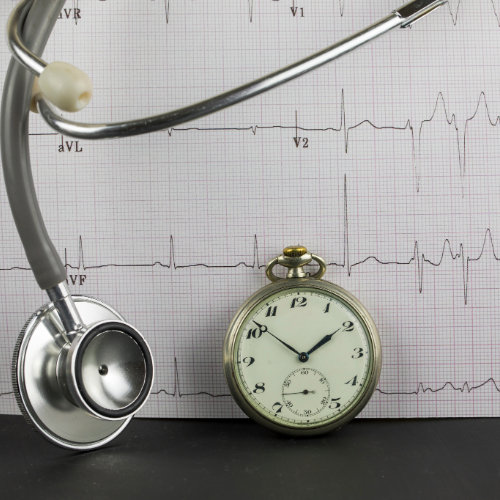
Heart rhythm disorders refer to situations where the regular rhythmic beats of the heart are different from normal. Irregularities or abnormalities in heartbeats can occur due to the improper functioning of the heart’s electrical system. Heart rhythm disorders can come in many different types, with some being life-threatening, while others may present with mild symptoms.
Some common types of heart rhythm disorders include:
Arrhythmia: Any abnormality in heart rhythm is referred to as arrhythmia. This can mean the heart beating faster (tachycardia) or slower (bradycardia) than the normal rate.
Atrial Fibrillation: A rapid and irregular rhythm originating from the upper chambers of the heart, called atria. Atrial fibrillation can increase the risk of blood clot formation and stroke.
Atrial Flutter: An arrhythmia characterized by rapid and irregular trembling of the atrial chambers.
Ventricular Tachycardia: An abnormally fast rhythm originating from the lower chambers of the heart. Ventricular tachycardia can lead to severe symptoms and sudden cardiac arrest.
Ventricular Fibrillation: A condition characterized by uncoordinated and rapid trembling of the lower heart chambers. Ventricular fibrillation is a life-threatening condition that requires immediate medical intervention.
Heart rhythm disorders can be associated with various causes, including:
- Heart disease
- Hypertension (high blood pressure)
- Electrolyte imbalances (such as potassium, magnesium)
- Metabolic diseases (such as thyroid disease)
- Obesity
- Stress and anxiety
- Smoking or alcohol use
- Genetic factors

The diagnosis of heart rhythm disorders can be made through tests such as an electrocardiogram (ECG), Holter monitor, stress test, or electrophysiological study. Treatment options include medication, implantation of a pacemaker, ablation procedures, and sometimes surgical intervention.
What Are the Treatment Methods for Heart Rhythm Disorders?
Heart rhythm disorders are treated based on symptoms and the diagnosed type. In some cases, regular medical check-ups and lifestyle changes (such as not smoking, regular exercise, and a healthy diet) may help control symptoms. Especially in severe or life-threatening arrhythmias, rapid medical intervention is crucial.

